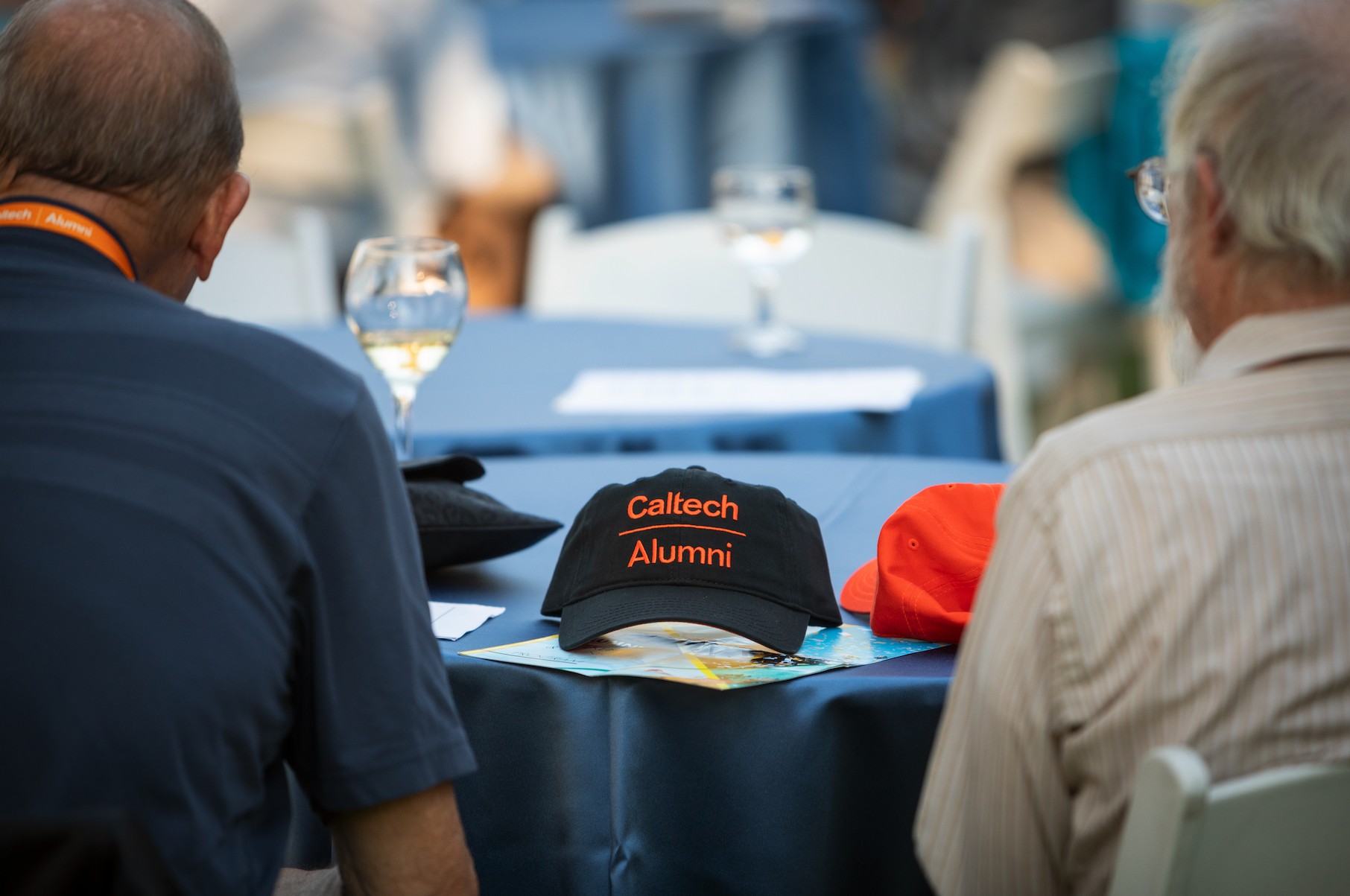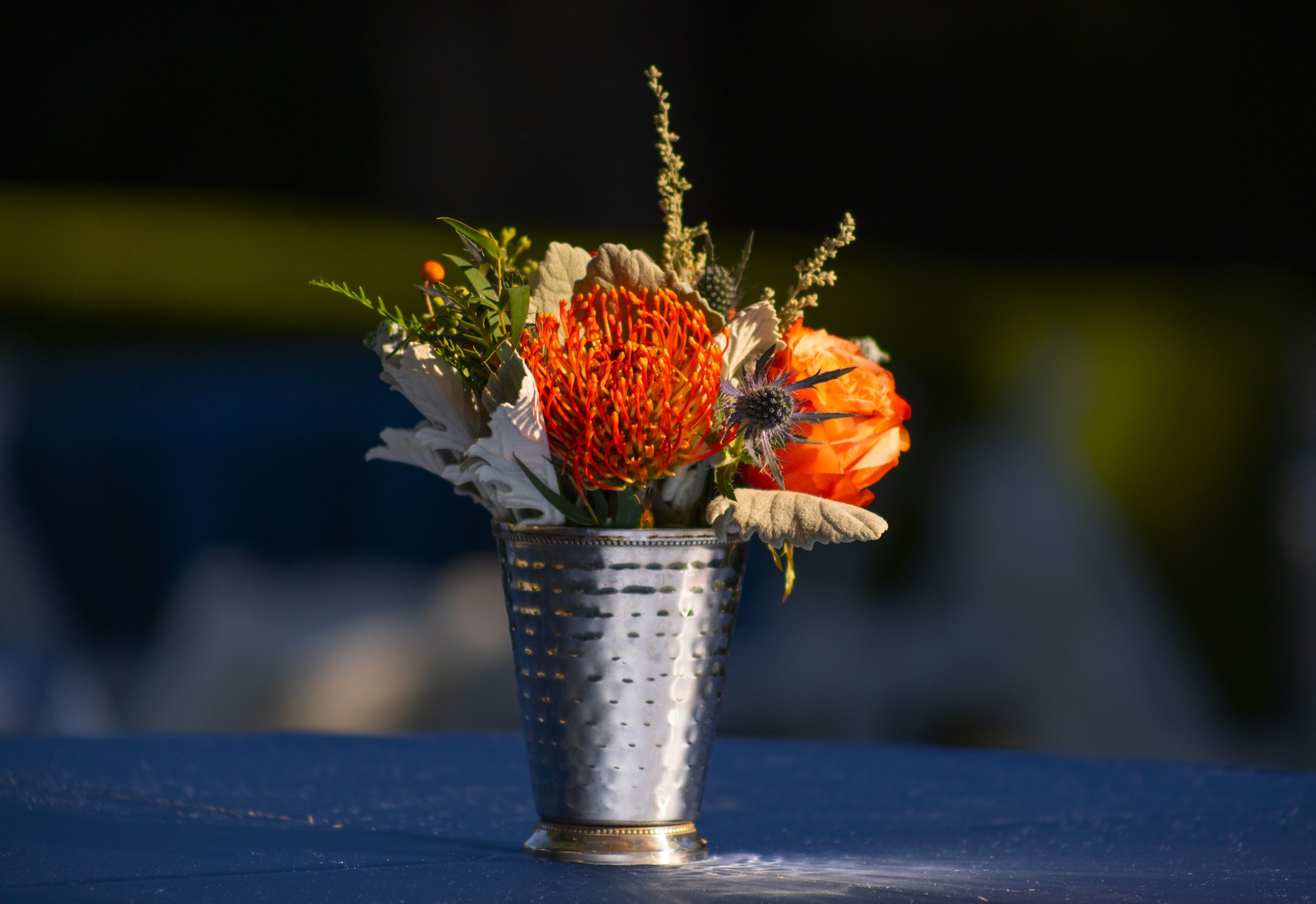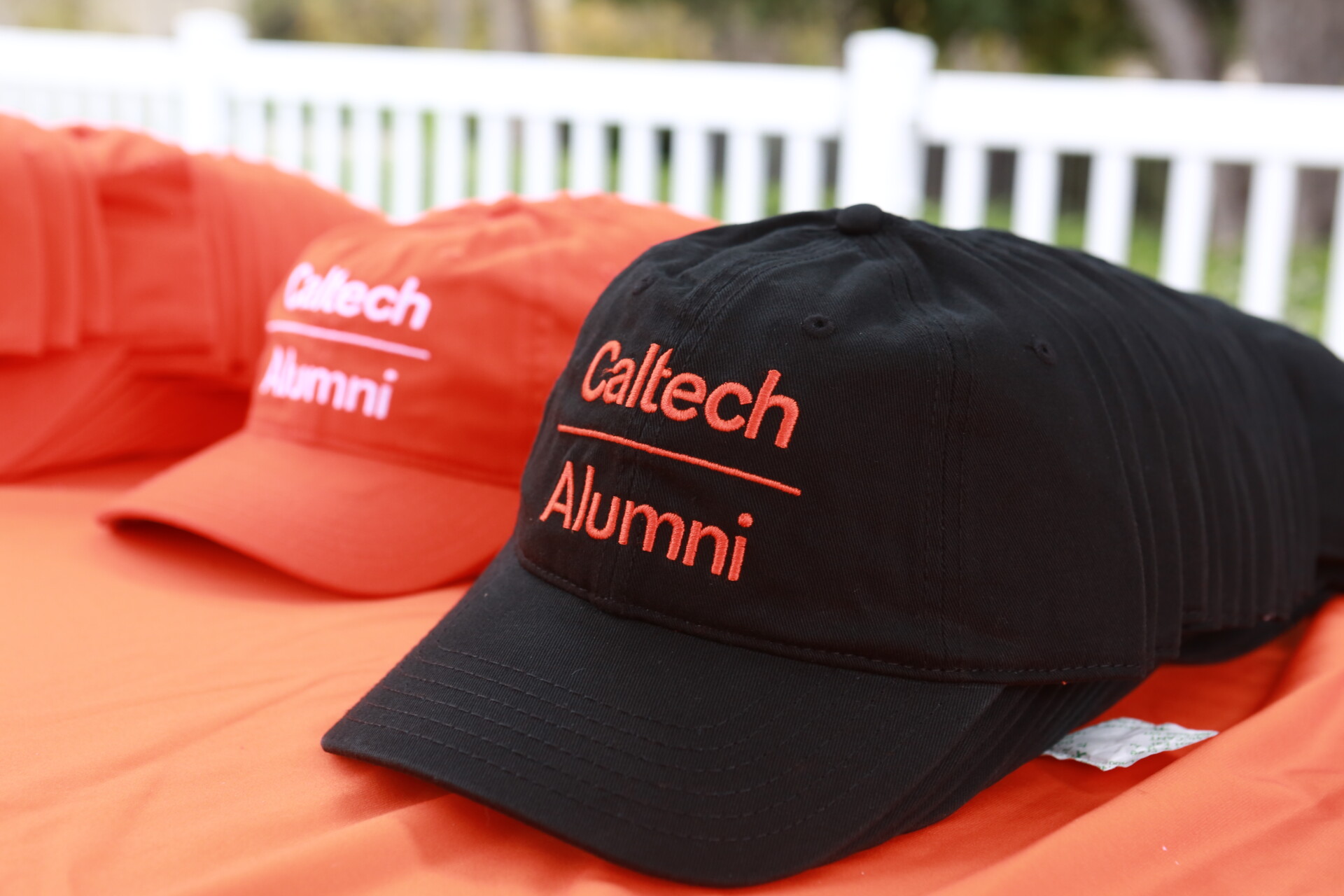The Giving Reflex

Peter Hung has seen Caltech from a variety of angles—as an undergraduate, a graduate student, an award-winning instructor, a research mentor, an alumnus, and a donor. His story is a case study in what Caltech gives to its community, and how that community gives back.
One asset Caltech gives: The skills to untangle almost any problem. According to Hung (BS ’08, PhD ’16), it all begins with a fundamental of Caltech undergraduate education—the open-ended problem set.
“The problem set requires you to think critically and draw on everything you know,” Hung says. “It also requires collaboration with your peers.”
He continues: “What’s really special is that you know no matter how hard a problem is, there’s a solution. And someone will be able to help you. These are important lessons, because real life is not a book problem. So my Caltech coursework gave me the confidence to attack any challenge.”
One way Caltech people give back: By making sure that others have access to the unique experiences that shaped their own trajectories.
For Hung, one of those formative experiences was Caltech’s Summer Undergraduate Research Fellowship (SURF) program. This donor-powered program introduced him to lab research in the months after his freshman year. His second SURF opened up the world of nanofabrication, a key aspect of his research when he returned to Caltech to do graduate work in applied physics.
As a graduate student in the lab group led by Michael Roukes, Caltech’s Robert M. Abbey Professor of Physics, Applied Physics, and Bioengineering, Hung went on to mentor SURFers himself. And in his last year as a doctoral candidate, he made a gift to support SURF.
“That summer term with SURF is really when you do the deep learning,” Hung says. “SURF also taught me the importance of donors. I’ve benefited so much from it, I wanted to give back. Someone has to continue that cycle.”
Another foundational step in Hung’s path toward becoming a researcher was his experience in the Caltech course Ph6, Physics Laboratory. Hung struggled in the class, but Caltech gave him exactly the support he needed—in the form of a TA named Janet Scheel (PhD ’07).
“She did everything she could to help,” Hung says. “I was amazed by how knowledgeable she was about the wide range of topics the course covered. I wanted to be like her.”
So, starting the next semester, Hung began providing that same support to others as a TA for Ph6. He went on to win both the R. Bruce Stewart Prize for Excellence in Teaching Physics and an Associated Students of the California Institute of Technology Teaching Award. He used some of his Stewart Prize winnings to make his gift to SURF and to purchase and donate books to stock the Ph6 library.
“…[M]y Caltech coursework gave me the confidence to attack any challenge.”
— Peter Hung
Hung has even invested in the organization that first linked him to Caltech. He found out about Caltech through the Science Olympiad, a national science and engineering competition for high schoolers—a common experience among those who go on to study at Caltech. And it was a Science Olympiad adviser who pointed him toward his first SURF opportunity at JPL.
So, in his first year on campus, Hung founded the Caltech Science Olympiad Club in 2004. Through that organization, Caltech has designed and scored tournaments, supported coaches’ workshops and practice competitions, and even hosted the 2016 state tournament. At that event, 150 volunteers, mostly Caltech students and alumni, helped 60 teams of finalists participate in 46 events. Today, Hung co-directs the Southern California Science Olympiad and is a member of the national advisory board.
Hung also continues to support Caltech students by mentoring undergraduate interns at The Aerospace Corporation, a nonprofit that operates a federally funded research and development center for government, civil, and commercial customers in El Segundo, California, where he works as a researcher. He and the interns are investigating how and why some normally earthbound molecules—say, the oils left behind in handprints or the byproducts that leach from plastics—can float away after spacecraft enter the vacuum of space.
“There’s something special about Caltech students,” Hung says. “They really take ownership. They’re proactive. And they always ask, ‘Why?’ I was telling my friend about how great these interns are. And he said, ‘Of course they are—they’re from Caltech!’”
In the brief period since he left Caltech, Hung’s gifts of time and money already are helping promising high schoolers learn about Caltech, supporting formative research experiences for undergraduates in campus labs, and connecting Caltech students to opportunities beyond Pasadena. One day, these newest members of the Caltech community will give back too, helping set in motion experiences that benefit other students, far into the future.
Related Articles
-

Caltech Alumni Association’s Board of Directors and Officers Election – Overview & How to Vote
An overview and details on how to vote in the 2025 Caltech Alumni Association’s Board of Directors and Officers Election
-

Caltech Alumni Association’s Board of Directors and Officers Election – Letter from the CAA Chair
A letter from the Caltech Alumni Association’s Board Chair on the Board of Directors and Officers Election
-

2025 Candidates for the Caltech Alumni Association’s Board of Directors and Officers
The Caltech Alumni Association is pleased to announce the 2025 candidates for the Caltech Alumni Association’s Board of Directors and Officers.